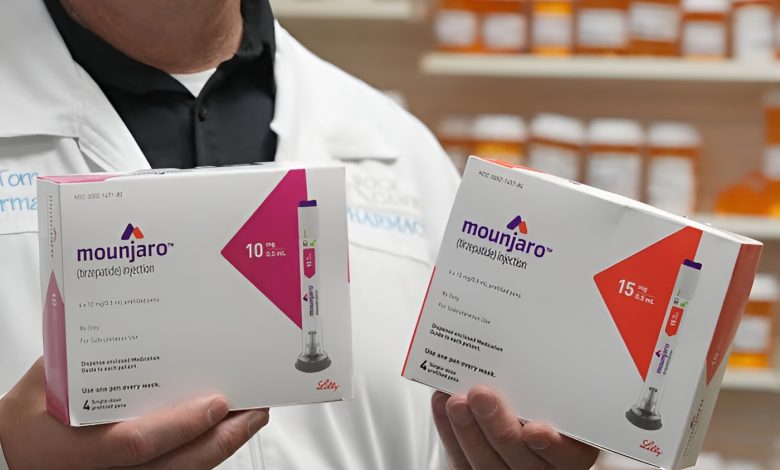Novo & Lilly’s Weight-Loss Drugs: Why European Doctors Want Them as the First Option for Obesity

Obesity has become one of the greatest health challenges of the 21st century. Once dismissed as merely a “lifestyle issue,” obesity is now recognized as a chronic, complex disease that shortens lives, increases healthcare costs, and fuels conditions like diabetes, heart disease, and cancer. For decades, doctors relied on diet, exercise, and eventually surgery as the main options for treating obesity. But in recent years, a medical revolution has taken shape—one driven by the new generation of weight-loss drugs from Novo Nordisk and Eli Lilly.
These drugs—semaglutide (Novo Nordisk’s Wegovy) and tirzepatide (Eli Lilly’s Mounjaro/Zepbound)—are not only changing waistlines; they are changing the way we think about obesity altogether. And in Europe, doctors are beginning to make a bold statement: these drugs should be considered the first-line treatment for obesity, not the last resort.
This shift represents a powerful moment in medicine—where science, patient stories, and public health collide. But why are European doctors so eager to make this change, and what does it mean for the future of weight management?
Scale of the Obesity Crisis
Obesity is no longer a niche concern; it’s a global epidemic.
- In Europe, more than half of adults are overweight or obese.
- By 2035, experts predict that over 1 in 4 Europeans could be living with obesity.
The consequences go beyond appearance. Obesity is tied to:
- Type 2 diabetes
- Hypertension and heart disease
- Joint pain and reduced mobility
- Increased cancer risk
- Shortened life expectancy
For years, lifestyle interventions—healthy eating and exercise—have been the “go-to” solutions. But while they remain important, evidence shows that many people with obesity struggle to sustain long-term results. That’s where these new drugs come in.
The Game-Changing Drugs – Semaglutide & Tirzepatide
How They Work
- Semaglutide (Novo Nordisk/Wegovy): Originally developed for diabetes, this drug mimics a hormone called GLP-1, which regulates appetite and blood sugar. It helps people feel fuller, eat less, and lose weight consistently.
- Tirzepatide (Eli Lilly/Mounjaro/Zepbound): A newer drug, it acts on two hormones (GLP-1 and GIP), making it even more effective. Clinical trials show it can lead to up to 20% body weight reduction—rivaling the results of bariatric surgery.
The Results
- Patients lose 15–20% of body weight on average.
- Improvements in blood sugar, cholesterol, and blood pressure.
- Reduced risk of cardiovascular disease.
- Many report better mobility, improved sleep, and restored confidence.
For the first time, medicine is offering results that truly rival invasive surgery—without the risks of going under the knife.
Why European Doctors Are Pushing for First-Line Use
Historically, weight-loss medications were seen as “last-chance” options, given only when lifestyle changes failed. But European doctors are challenging that approach for several reasons:
Obesity is a Disease, Not a Failure of Willpower
Doctors argue that treating obesity with modern drugs acknowledges it as a biological condition, not a personal weakness.
Early Treatment = Better Outcomes
Tackling obesity sooner helps prevent diabetes, heart disease, and joint problems before they spiral out of control.
Patient Success Stories
Across Europe, patients on Wegovy and Mounjaro describe feeling like “new people.” Their energy, health, and hope return. These stories inspire doctors to rethink old approaches.
Scientific Backing
Clinical studies prove that these drugs are not just cosmetic—they reduce risks of serious illness and even death.
Reducing the Burden on Healthcare Systems
By preventing chronic disease early, these drugs could save billions in healthcare costs for Europe.
Emotional Impact – What Patients Are Saying
Numbers and statistics matter, but the human stories are where the emotional impact truly lies.
- Anna, 38 (Germany): After years of dieting, Anna finally lost 18 kg on Wegovy. “For the first time, I feel like my body is working with me, not against me.”
- Marco, 45 (Italy): On Mounjaro, he lost 25% of his weight and reversed his prediabetes. “It gave me my life back. I can play football with my son again.”
- Sofia, 29 (Spain): Struggled with obesity since childhood. “This drug made me believe I can have a normal future.”
For patients, it’s not just about weight—it’s about hope, mobility, relationships, and dignity.
The Controversies and Challenges
Despite the enthusiasm, there are obstacles:
- Cost & Accessibility: These drugs are expensive, often €200–€300 per month, and not all insurance systems cover them.
- Supply Shortages: Demand has outpaced supply, leaving many without access.
- Long-Term Questions: How safe are these drugs over 10, 20, or 30 years? Do patients need to take them for life?
- Ethical Concerns: Should limited supplies go to people with diabetes first, or those seeking weight loss?
European doctors acknowledge these challenges but argue that the potential benefits outweigh the drawbacks.
The Future of Obesity Treatment in Europe
The push for first-line use signals a larger shift:
- Obesity Medicine as a Specialty: Doctors want obesity treated like cancer or diabetes—with structured medical care, not judgment.
- Policy Changes: Some European countries are beginning to expand insurance coverage for weight-loss drugs.
- Public Awareness: Campaigns are reframing obesity as a chronic disease, not a personal failing.
- Next-Generation Drugs: Pharmaceutical companies are already developing even more advanced treatments, with higher efficacy and fewer side effects.
This may be the dawn of a new era in obesity care—where science finally matches the scale of the crisis.
Conclusion – A Turning Point in the Obesity Battle
For too long, obesity was treated as a problem of willpower, leaving millions trapped in cycles of shame, diets, and disappointment. But the rise of Novo Nordisk’s and Eli Lilly’s drugs signals something revolutionary: a recognition that obesity is a disease that deserves the best of modern medicine.
European doctors pushing to make these treatments first-line options is not just about prescribing medication—it’s about changing mindsets, restoring dignity, and giving people the tools to live healthier, longer lives.
The science is clear. The patient stories are powerful. The urgency is undeniable.
We are standing at a crossroads: Will society embrace this medical revolution, or will stigma and barriers keep people from accessing life-saving help?
If history is any guide, progress will not come easily. But for millions living with obesity in Europe—and beyond—the hope has already arrived, in the form of a small injection with the power to change everything.




